Sarah Hurst was a regular contributor to CHESS magazine in the 1990s and also edited the British Chess Federation’s newsletter, ChessMoves. Her fine book Curse of Kirsan: Adventures in the Chess Underworld is now available on Kindle at a bargain price. Since 2002 she has been translating articles and books for New in Chess, ChessCafe and other chess publishers. She has also worked in mining journalism, intercultural training and reality TV. She has lived in the UK, Russia, Belarus, Azerbaijan, China and Alaska.
What made you write Curse of Kirsan?
The book is a collection of my chess articles plus a narrative about how I tried to survive as a freelance chess journalist in London in the 1990s. I had already written the articles, most of which had appeared in chess magazines, and I had moved to Alaska and thought it would be good to turn my articles into a book for posterity.
What did you hope it would achieve?
Nothing politically, there was no longer any momentum in the campaign against Kirsan by 2001, but I just hoped more people would be able to read my interviews with and articles about famous chess players.
What has changed for the better in chess since you wrote it?
I was happy that Kasparov fought hard against Kirsan in the last FIDE election and that Nigel Short even told me I had been right about Kirsan all along. When I campaigned for a boycott of the Elista Olympiad in 1998 some top players were very disparaging of me, but now I think the vast majority want to get rid of Kirsan.
And for the worse?
Kirsan is as corrupt as ever and the last world championship was held in Russia, a terrorist state. I was disappointed that Carlsen and Anand played there. Also, as in all publishing, print magazines are going out of business and journalists who write for the internet are paid little or nothing, so standards are plummeting.
Who was your most interesting/memorable interviewee?
Mikhail Botvinnik, because he was the first one and inspired all my other interviews. When I interviewed him at the central chess club in Moscow in 1994 I didn’t know that this would launch a career in chess journalism and translating that would last for over 20 years. It was supposed to be for my undergraduate dissertation on chess in the Soviet Union. Botvinnik told me to go away and read his book, so I did, then I came back from where I was studying in Minsk and interviewed him. And he wrote me a thank you note for the article, which I still have.
And the most disturbing?
Kirsan, he showed me his photo album of meetings with Saddam Hussein and other luminaries.
Who would you most like to interview?
I can think of three people. In chess, historian Edward Winter, because he is a walking encyclopaedia but remains elusive. Outside chess, another elusive character whom I admire, Banksy. And I would like to interview Steve Martin because it would be incredible to meet him. I saw him playing banjo on stage in Alaska, and he must be one of the most talented and funny entertainers in the world.
How did writing the book change your view of chess players?
I didn’t really have a view of chess players before I started meeting them, but after getting to know them I found out that they had a very diverse range of interests – some were obsessive collectors, some were talented musicians, and so on. But I also came to the conclusion that chess brilliance has nothing to do with high intelligence in other areas, but tends to give top players a false idea of their own high intelligence. They equate their FIDE rating with their IQ. In fact they have devoted so much time to chess that they may not be so brilliant at other things. And I don’t agree with the theory that chess skills can be applied to other aspects of life. Chess is a very individual pursuit, it doesn’t require collaboration, and it doesn’t take into account complex human relationships. Most of life is not like chess at all.
What has been your biggest disappointment?
Chess players still accept Kirsan. They shouldn’t have anything to do with FIDE while he’s leading it. He’s not holding them prisoner.
Which single thing would most improve the global chess scene?
Obviously the absence of Kirsan. And more women playing chess.
What do you think about doping control in chess?
I haven’t thought about this before now, but I doubt any drug could improve people’s ability to play chess. Maybe their ability to stay awake. The testing process is so expensive and fraught with complications that it doesn’t seem worth it, especially as the financial stakes are rarely that high. Cheating via hidden electronic devices seems like a much bigger issue.
Which player do you most admire?
Judit Polgar for making it in a man’s world. Then if I can have a second choice I will say Viktor Korchnoi for facing up to all the crap the Soviet Union threw at him, including arresting his son. Now that Putin’s regime is a fully-fledged dictatorship I understand the true awfulness of the Soviet Union.
Which book would you take to a desert island?
Usually I don’t read books of chess games, but this would be a great opportunity, I would take The Sorcerer’s Apprentice by David Bronstein because going through the games would take a lot longer than reading a book that was just text.
Who is the chess writer you most enjoy reading, and why?
Jan Hein Donner’s The King was the most enjoyable book I read, because of the insights and wit.
What is your most treasured possession?
A daughter isn’t really a ‘possession’ so I can’t say her. Probably a framed cartoon of myself encountering a Soviet policeman saying ‘Ello, ello, ellosky!’ that was in The Times accompanying my article about visiting the Soviet Union in 1990.
What makes you happy?
Listening to my daughter’s jokes, she is six.
What are you doing now?
I moved back to England after 12 years in Alaska in 2013 and I have gone back to doing what I always planned to do, writing about Russian politics. I have translated numerous chess books and countless articles
What is the most important lesson life has taught you?
I’m not sure if ‘Putin must die’ is an acceptable answer, so I’ll say ‘don’t be too cynical’. Sometimes you have to believe.
Curse of Kirsan: Adventures in the Chess Underworld is now available on Kindle for £2.60 in the UK or $3.99 in the US.

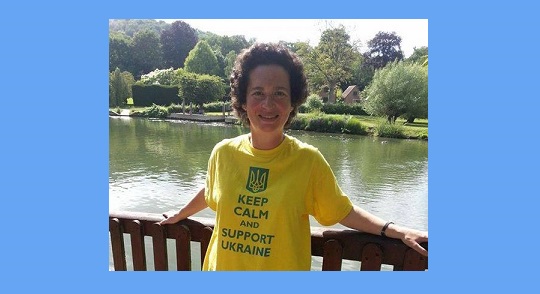
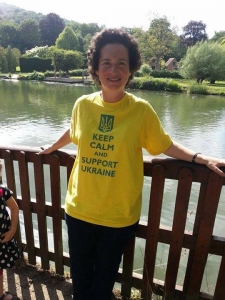
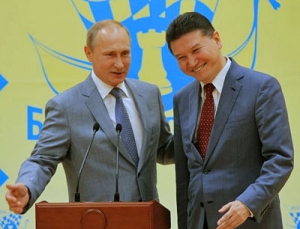
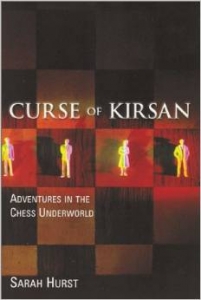
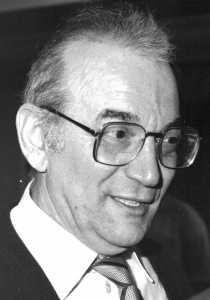
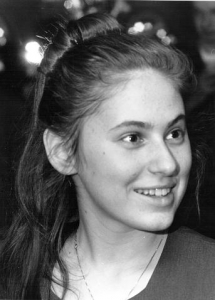
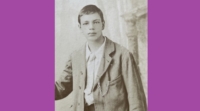
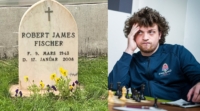
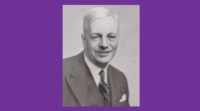
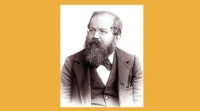
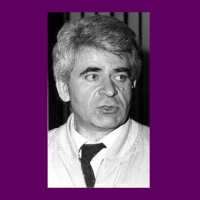
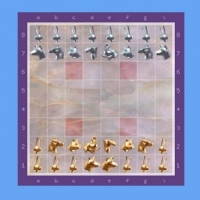
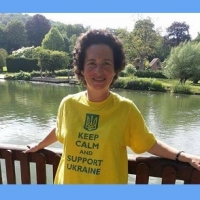
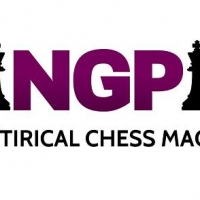
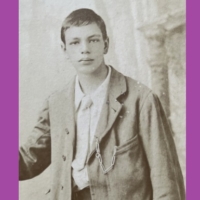
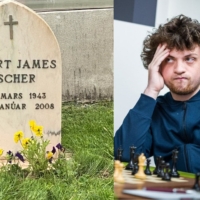
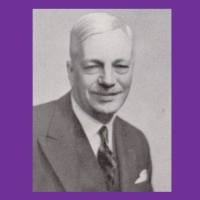
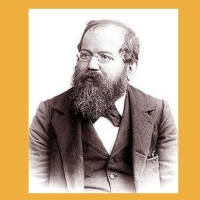
When I saw this I thought, “These guys published an issue of Kingpin without an attack on Keene. How could they slip up like that? What is this world coming to?” How the I looked at the sidebar and realized that there is their traditional attack on Keene there, but only on the side bar, a repeat of their attack from 1993 (22 years ago) but repeated in 2010 (five years ago). They have managed to devote their feature article here to something other than an attack on Keene. Amazing!
Sarah Hurst writes “I was disappointed that Carlsen and Anand played there. ” I understand why she writes that but the reality was Putin made the only bid. If the match had not been played in Russia, it would not have been played at all. Nobody thought Anand had a chance and therefore nobody else was willing to back it. Would Sarah Hurst have all the chess grandmasters of the world starve to death in order to stand on principle?
One could ask Sam Sloan if he would have the people of Ukraine slaughtered endlessly by Putin so that two elite chess players can have a match in Sochi.
Sarah – in case you don’t know, Sam is US chess’ crazy uncle in the basement.
He is an ex-con who spent time in jail, and his latest scam, “Ishi Press”, makes money by “re-printing” (i.e. stealing) books.
His latest “book”, appropriately enough “written” by Keene, on the 2014 Carlsen-Anand match, is a cut-and-paste job from other books or columns, which were themselves similar hack jobs…
As a crowning achievement, the “book” has over 100 faulty gibberish diagrams, because our “publisher” couldn’t be bothered to check if he used the correct font.
I really enjoyed this insight. Being from Finland we still see the fallout of things from that era so it was a nice way to tie it in. Players often forget the things some of the greatest chess players had to go through in order just to play a game they loved, astonishing world we live in even today!
Oh, Sarah! You are as smart and deep as you are beautiful!
[adjusts voice to his best imitation of Michael Douglas / Gordon Gecko] Sarah, cynicism is good. Cynicism is the foundation of our Democracy, the very fabric of a free and open society. .